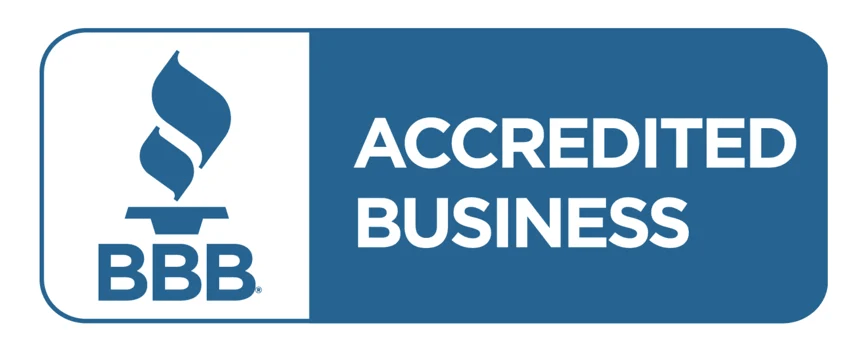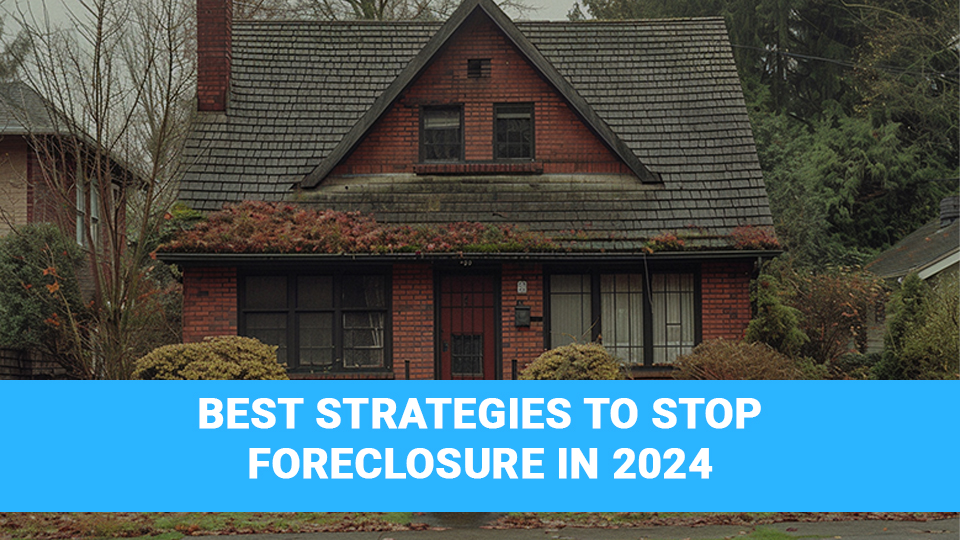10 Best Strategies to Stop Foreclosure in Missouri in 2024
Are you facing the threat of foreclosure in Missouri? Don't panic - you have options. Foreclosure can be a scary and overwhelming process, but there are several strategies you can use to prevent losing your home. In 2024, Missouri homeowners have more resources than ever to stop foreclosure, including selling a house during foreclosure.
Below, you'll learn about the top 10 foreclosure prevention strategies available in Missouri. From working with your lender to exploring government assistance programs, we'll cover all your options for keeping your home. By acting quickly and using these proven methods, you can take control of your financial situation and avoid foreclosure.
Let's dive in and explore how you can protect your most valuable asset.
1. Contact Your Lender Immediately
When you're at risk of foreclosure, your first step should be to contact your lender right away. Don't avoid their calls or letters - instead, reach out proactively to discuss your situation. Many lenders have foreclosure prevention programs designed to help struggling homeowners, but you need to communicate with them to access these options.
By contacting your lender early, you show that you're committed to resolving the issue. Explain your financial hardship and ask about available assistance programs. Your lender may be able to offer temporary payment reductions, interest rate adjustments, or other modifications to help you get back on track.
2. Apply for a Loan Modification
A loan modification can be an effective way to stop foreclosure and make your mortgage more affordable. This process involves changing the terms of your existing loan to lower your monthly payments. You might be able to extend the loan term, reduce the interest rate, or even get a portion of the principal forgiven.
To apply for a loan modification, you'll need to submit financial documents to your lender, including proof of income, expenses, and hardship. The lender will review your application and determine if you qualify for a modification. If approved, you'll receive new loan terms that should be more manageable for your current financial situation.
3. Request a Forbearance Agreement
A forbearance agreement can provide temporary relief if you're struggling to make mortgage payments. This strategy allows you to pause or reduce your payments for a set period, typically 3-6 months. During this time, your lender agrees not to initiate foreclosure proceedings, giving you a chance to improve your financial situation.
To request forbearance, contact your lender and explain your hardship. You'll need to provide documentation of your financial difficulties. If approved, you and your lender will agree on the terms of the forbearance, including how long it will last and how you'll repay the missed amounts. Remember, forbearance is a temporary solution - you'll still need to repay the skipped payments, usually by adding them to the end of your loan or through a repayment plan.
4. Pursue a Repayment Plan
A repayment plan can help you catch up on missed mortgage payments and stop foreclosure. This strategy involves working with your lender to create a structured plan for paying back your overdue amount. You'll continue making your regular monthly payments while also paying an additional amount to cover the arrears.
To set up a repayment plan, contact your lender and explain your situation. They'll review your finances to determine what you can afford to pay each month. The plan typically spreads your past-due amount over several months or years.
For example, if you're $6,000 behind, you might pay an extra $500 per month for 12 months. By sticking to the repayment plan, you can bring your loan current and avoid foreclosure.
5. Consider a Short Sale
A short sale can be a viable option to stop foreclosure if you owe more on your home than it's worth. In a short sale, your lender agrees to let you sell the home for less than the outstanding mortgage balance. While you won't keep your home, you can avoid foreclosure and its long-lasting negative impacts on your credit.
To pursue a short sale, you'll need your lender's approval. Start by contacting them to express your interest in this option. You'll then need to list your home for sale and find a buyer. Once you have an offer, submit it to your lender for approval. If they agree, you can proceed with the sale. While a short sale will still affect your credit, it's generally less damaging than a foreclosure.
6. Explore a Deed In Lieu Of Foreclosure
A deed in lieu of foreclosure is another option to consider when you can't keep up with mortgage payments. This strategy involves voluntarily transferring ownership of your home to the lender in exchange for being released from your mortgage debt. While you'll lose your home, you can avoid the foreclosure process and its severe credit consequences.
To pursue this option, contact your lender and express your interest in a deed in lieu of foreclosure. You'll need to provide financial documentation proving you can't afford the home. If approved, you'll sign over the deed to your lender and move out of the property. In return, the lender agrees not to pursue foreclosure or any remaining balance on the loan.
7. File for Bankruptcy
Filing for bankruptcy can be an effective way to stop foreclosure, at least temporarily. When you file, an "automatic stay" goes into effect, which immediately halts all collection activities, including foreclosure proceedings. This can give you time to reorganize your finances and potentially save your home.
There are two main types of bankruptcy to consider: Chapter 7 and Chapter 13.
- Chapter 7 can delay foreclosure but may not allow you to keep your home long-term.
- Chapter 13, however, involves a repayment plan that can help you catch up on missed mortgage payments over time.
To file for bankruptcy, you'll need to work with an attorney and complete credit counseling. While bankruptcy has serious long-term consequences, it can be an effective last resort to stop foreclosure.
8. Seek Assistance From Housing Counseling Agencies
Housing counseling agencies can provide valuable guidance and resources to help you stop foreclosure. These organizations offer free or low-cost advice on foreclosure prevention strategies, budgeting, and working with your lender. They can help you understand your options and develop a plan to keep your home.
To find a housing counselor, start by contacting the U.S. Department of Housing and Urban Development (HUD). They maintain a list of approved counseling agencies in Missouri. Once you connect with a counselor, they'll review your financial situation and help you explore foreclosure prevention options.
9. Refinance Your Mortgage if Possible
Refinancing your mortgage can be an effective way to lower your monthly payments and stop foreclosure. This process involves taking out a new loan to pay off your existing mortgage, ideally with better terms. You might be able to secure a lower interest rate, extend your loan term, or both, resulting in more affordable payments.
To refinance, start by shopping around for lenders and comparing rates. You'll need to submit a new loan application and provide financial documentation. If approved, the new loan will pay off your old mortgage, and you'll start making payments on the new loan. Keep in mind that refinancing typically requires good credit and some equity in your home.
10. Sell Your House As-Is for Cash
Selling your house for cash can be a quick way to stop foreclosure and avoid its negative consequences. Cash buyers, often real estate investors, can purchase your home in its current condition without requiring repairs or improvements. This can be a faster process than a traditional sale, allowing you to pay off your mortgage and move on.
To pursue this option, research reputable cash buyers in your area. Get multiple offers to ensure you're getting a fair price. Once you accept an offer, the buyer will typically handle most of the paperwork and closing process. While you may not get top dollar for your home, you can often close the sale in a matter of weeks, stopping foreclosure in its tracks.
Sell Your House Fast in Missouri and Kansas
If you need to sell your house fast but don’t want the hassle of a traditional home sale, contact Brittco. We buy houses as-is. No repairs are needed. Avoid closing costs and realtor commissions. Close in as little as seven days. Call 913-219-5583 for a fast cash offer from our local home buyers in Missouri and Kansas.


